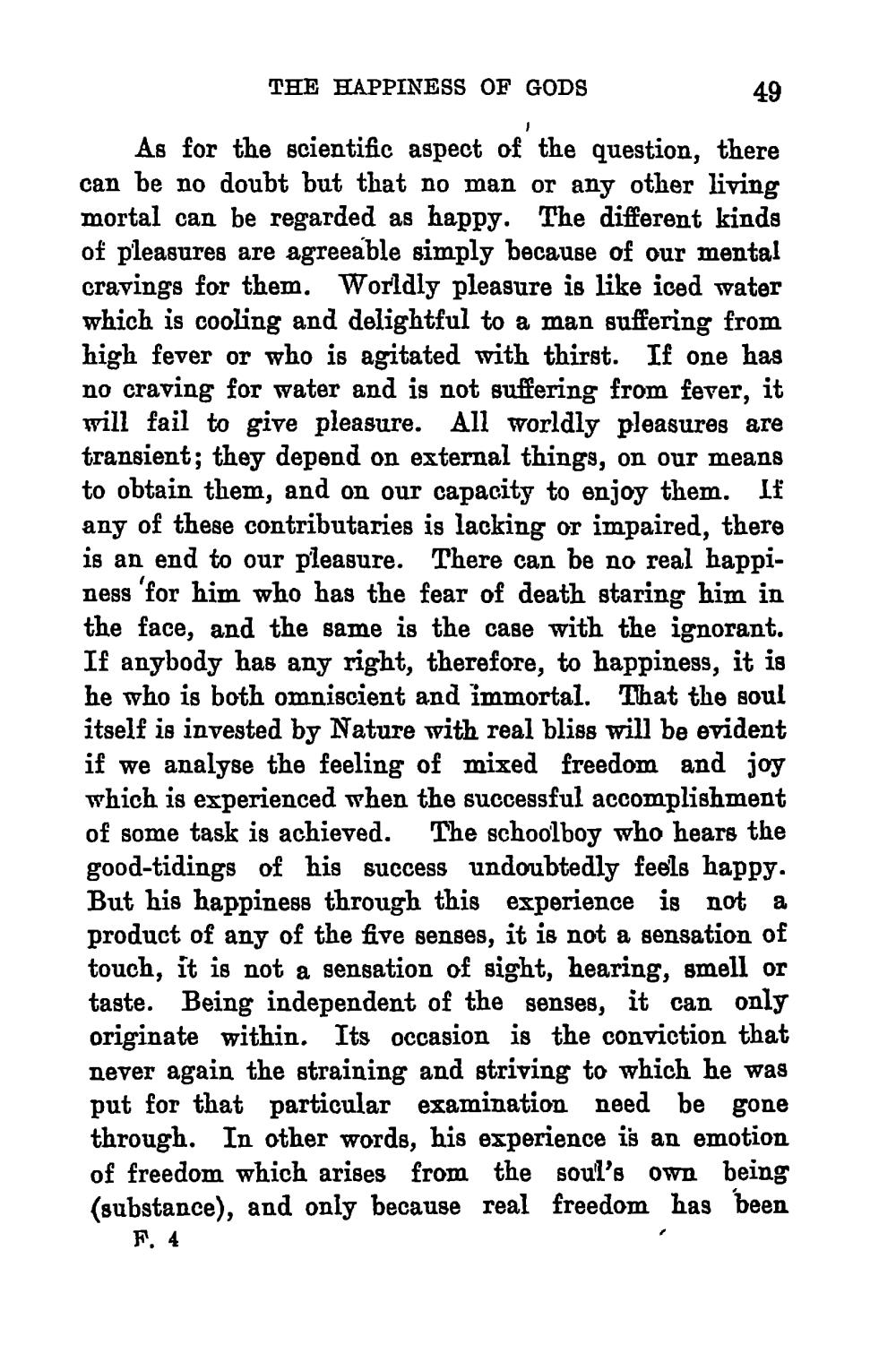________________
THE HAPPINESS OF GODS
As for the scientific aspect of the question, there can be no doubt but that no man or any other living mortal can be regarded as happy. The different kinds of pleasures are agreeable simply because of our mental cravings for them. Worldly pleasure is like iced water which is cooling and delightful to a man suffering from high fever or who is agitated with thirst. If one has no craving for water and is not suffering from fever, it will fail to give pleasure. All worldly pleasures are transient; they depend on external things, on our means to obtain them, and on our capacity to enjoy them. If any of these contributaries is lacking or impaired, there is an end to our pleasure. There can be no real happiness for him who has the fear of death staring him in the face, and the same is the case with the ignorant. If anybody has any right, therefore, to happiness, it is he who is both omniscient and immortal. That the soul itself is invested by Nature with real bliss will be evident if we analyse the feeling of mixed freedom and joy which is experienced when the successful accomplishment of some task is achieved. The schoolboy who hears the good-tidings of his success undoubtedly feels happy. But his happiness through this experience is not a product of any of the five senses, it is not a sensation of touch, it is not a sensation of sight, hearing, smell or taste. Being independent of the senses, it can only originate within. Its occasion is the conviction that never again the straining and striving to which he was put for that particular examination need be gone through. In other words, his experience is an emotion of freedom which arises from the soul's own being (substance), and only because real freedom has been
F. 4




